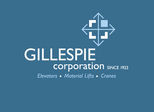- Glenn Siegel
- Sep 30, 2019
Just like the miracle of the human body, where countless complex processes have to work in order to survive, lots has to go right to produce a successful concert. That almost didn’t happen on Wednesday, September 25, as Pioneer Valley Jazz Shares began its 8th season at the 121 Club in Easthampton. Arriving a little late, we scrambled to set-up the room, only to discover we were short a music stand. Then we realized we had a broken hi-hat stand. Finally, our guitar amp turned up fritzy. Each time, with increasing sheepishness, we walked downstairs at Eastworks to ask a stranger: musician/engineer Jon Carroll for help. Carroll, who runs a fully equipped music studio, obliged without question.
Once the wracked nerves calmed, we were able to enjoy the immense amount of music given us by the Ingrid Laubrock Quartet: Brandon Seabrook, guitar, Michael Formanek, bass and Tom Rainey, drums, with the leader on tenor and soprano saxophones. Their 70-minute set, shared with 80 attentive listeners, was as intricate and extraordinary as any immune system.
With one exception, Laubrock’s compositions were new, being molded in anticipation of recording two days later at Firehouse 12 in New Haven. The contour of the music was oblique, evasive, circuitous. But when I wanted to “understand” what was going on at any given point in time, I would focus on Tom Rainey, who, with little fanfare and lots of flare, gave the music its shape. Rainey, who is Laubrock’s life partner, seemed to anticipate the music’s bends; his accents pointed the way for me. He responded nimbly to the other improvisers, and his movement (dance?) behind the kit also rooted me in the music.
The buzz after the concert centered around Seabrook, in part because, unlike his bandmates, he is a lesser known entity in western Mass. This was his second visit to the Valley, having performed with Tomas Fujiwara’s Triple Double last March in Greenfield. There was post-concert talk of bringing his string trio to the area. His variety of textures, produced with pedals, tape recorder and prodigious technique and imagination, provided enough variation for even the most restless listener. At one point, with Rainey scraping cymbals, Laubrock playing sans mouthpiece, Formanek producing harmonics with his bow and Seabrook doing his thing, I could not link an instrument to a particular sound.
Formanek and Rainey, both in their early sixties, are the veterans in the band, with the resumes to prove it. Formanek’s early career includes substantial experience with Stan Getz, Joe Henderson, Fred Hersch and Art Pepper, and, like Rainey, extensive later work with Tim Berne. Formanek has been recording under his own name for 30 years. (Rainey has released six records as a leader since his debut in 2010.) Formanek was an anchoring force, with unerring time and intonation. His even keel added stability to a volatile soundscape.
Although Ingrid Laubrock did not have benefit of a mic or an amp, she was easily heard above the fray. She was forceful and sure-footed, and her writing gave her bandmates every opportunity to flex their chops. Her talent is matched by musical ambition. After the concert, she laid two CDs on me: a free-wheeling duet with Rainey that highlighted her skill as an improviser, and an orchestral work that showed off her compositional and conceptual range. Her last area appearance was with Mary Halvorson in Tom Rainey’s Trio two years ago. Over dinner, the band celebrated the previous day’s announcement that Halvorson had been named a MacArthur Fellow. Can Laubrock be far behind?



























